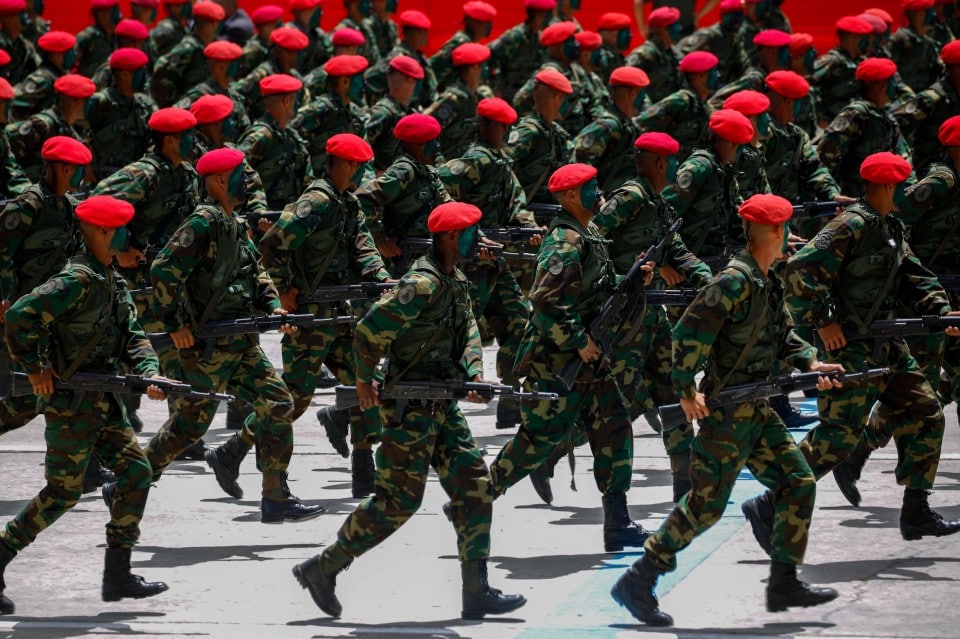Antonio Rivero is an exiled Venezuelan military general. He has been living in Miami since 2014 after fleeing an arrest warrant for participating in demonstrations against the regime of Nicolás Maduro.
In September of last year, with Venezuela in the throes of a humanitarian disaster, I met with Juan Guaidó in Miami to discuss the political situation in our country. In May, Nicolás Maduro was reelected president in an election that was condemned by much of the international community because of widespread allegations of fraud. At the time, I had great hopes that Guaidó, who was poised to become president of the National Assembly on Jan. 5, could then serve, according to the constitution, as interim president of the nation on Jan. 10 in the absence of a legitimately-elected leader.
While that has indeed come to pass — Guaidó took his oath of office on Jan. 23 and a number of countries, including the United States, have recognized him as interim president — most of Venezuela’s military have stuck by Maduro’s side. Guaidó, whom I call president, needs the support of the military to assume power. But Venezuela’s military high command still has not recognized Guaidó as interim president or as commander in chief of the armed forces, despite this being the best option for avoiding internal war or international intervention.
Unfortunately, trying to flip the military’s position will be an uphill battle. I hold this view based on what I have heard from military officials that I remain in contact with and based on my 30 years in the military (first serving as an active soldier and then working my way up to brigadier general). There are a number of factors that have so far prevented the military from officially recognizing Guaidó.
First, within the military high command, there is a deeply impregnated filial commitment to the late president Hugo Chávez and his ideology. This is partially because promotions are often based on such loyalties, and Maduro was known to occasionally purge disloyal members. Second, the armed forces receive privileges at the highest levels, such as promotions, bonuses and kickbacks.
Third, many within the military are involved in illicit activities such as drug trafficking. Those in the higher ranks often direct those operations, and some have also committed crimes against humanity. They are afraid of being detained and convicted if Maduro falls. The military high command’s refusal to support Guaidó makes the armed forces appear, from the outside, to be a monolithic institution that is loyal to Maduro.
However, there is evidence of growing discontent among lower and middle military officials, many of whom are aware of Maduro’s illegitimacy. A large number of professionals and troops have left the barracks over the last year, either deserting or withdrawing from service. Also over the last year, an increasing number of active members of the military have demonstrated in protests against Maduro. Hundreds of them have been detained as a result.
I believe the uprisings within the military will continue, especially with the amnesty law that Guaidó recently helped pass in the assembly. This law offers guarantees to military members that they will not be prosecuted should they disobey Maduro. It also nullifies any judicial procedures that exist against those who have rebelled and allows them to continue their military career, save for those who have committed crimes against humanity.
The best outcome would be for the military high command, as a unified force, to definitively pronounce the military’s obedience to the constitution and recognize Guaidó as the legitimate interim president and commander in chief. This would avoid an armed conflict, and with armed forces united under Guaidò’s command, could help further the arrival of humanitarian aid coordinated by Guaidò, which the military has moved to block. This outcome would bring order to Venezuela. But it is also unlikely to happen.
Another scenario is that a few high-ranking officers, who have until now only discreetly recognized Guaidó, take a firm stand and pronounce themselves in favor of the interim president. This would unleash the possibility that those who support Guaidó would follow their example and that the troops would rally in support. But with this scenario, there is also a risk of confrontation if not everyone in the military follows suit.
It is up to the military to break this stalemate. All military officials have a duty to stand on the side of freedom and democracy, and Guaidó is leading that side. Each military official must remember the oath he or she took, not in service of any one person or political party, but in service of the nation. It’s time for those of us in the military to come together and stand up for the people of Venezuela.
This text was translated from Spanish. It was produced by The WorldPost, a partnership of the Berggruen Institute and The Washington Post.





